"Greatest Hits Of Horrible Diet Culture": I Asked An Expert To Debunk All The Bad Food Advice That Was On TV In My Millennial Youth
Note: This post contains mentions of disordered eating.
There's a lot of '90s and early-2000s nostalgia going around these days, but one thing I don't miss about that period is the diet culture. And TV shows like The Dr. Oz Show, The Biggest Loser, and even The Oprah Winfrey Show spread a lot of weird misinformation about health and food that really contributed to a culture where we were made to feel that this obviously thin woman was horribly overweight.

When this photo of Jessica Simpson was taken in 2009, the media was quick to call her "jumbo," which was obviously ridiculous (BTW, even if she had been fat, that's also nobody's business).
Recently, this image went viral again as millennials looked back on celebs who were labeled "fat" by the 2000s media, and it served as a stark reminder of the kind of toxic body and diet talk that we were just constantly soaking in back then.
Not to say we're all doing perfectly now, but wow, things have changed.
To debunk the worst of the worst food and diet talk from popular TV shows of my millennial youth, I talked to Jen Baum, a registered dietitian nutritionist who specializes in intuitive eating and eating disorder treatment. She's also one of the hosts of one of my favorite new podcasts, Nutrition for Mortals, which is all about busting nutrition myths and helping listeners "cultivate a healthy and peaceful relationship with food."
From almond moms and ingredient households to hormone-balancing diets and the truth about alkaline water, Baum and her cohost, Matt Priven, cover so many interesting and timely topics in nutrition.
Baum and I had a really enlightening conversation where she shared her insights about seven specific 2000s TV moments that we should all go ahead and scrub from our brains. Here's what we talked about:
1.Over the years, Dr. Oz, also known as Mehmet Oz, used his show to recommend various supposed "metabolism-boosting" supplements, touting products ranging from raspberry ketones to green coffee bean extract as "miraculous" weight loss aids.
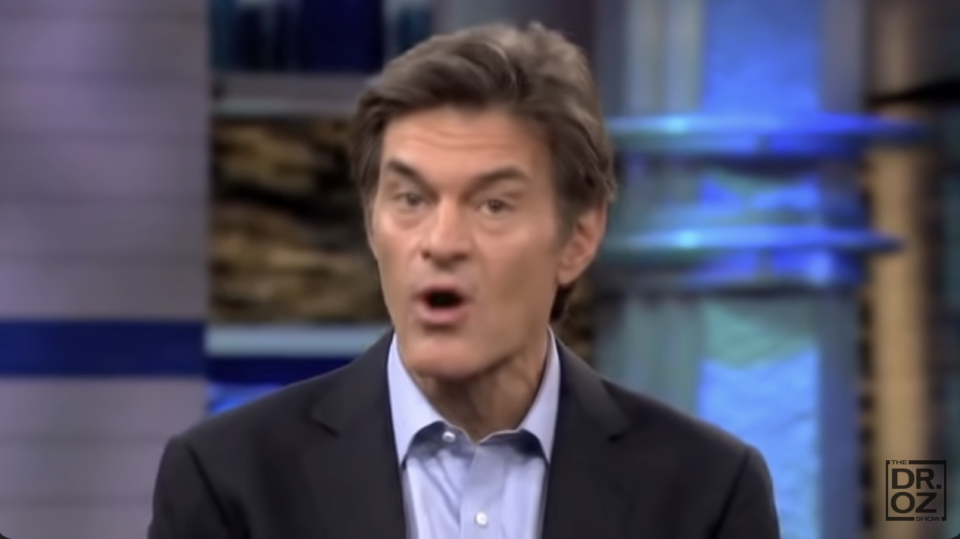
However, those claims didn't have scientific evidence to back them up (outside of potentially biased studies funded by the supplement manufacturers themselves).
And according to Baum, that's not how metabolism works anyway. She explained, "Metabolism is really just a product of all of the biochemical reactions that are going on in our body at one time. It includes the reactions that are keeping our heart beating, our brain functioning, and our digestive system moving."
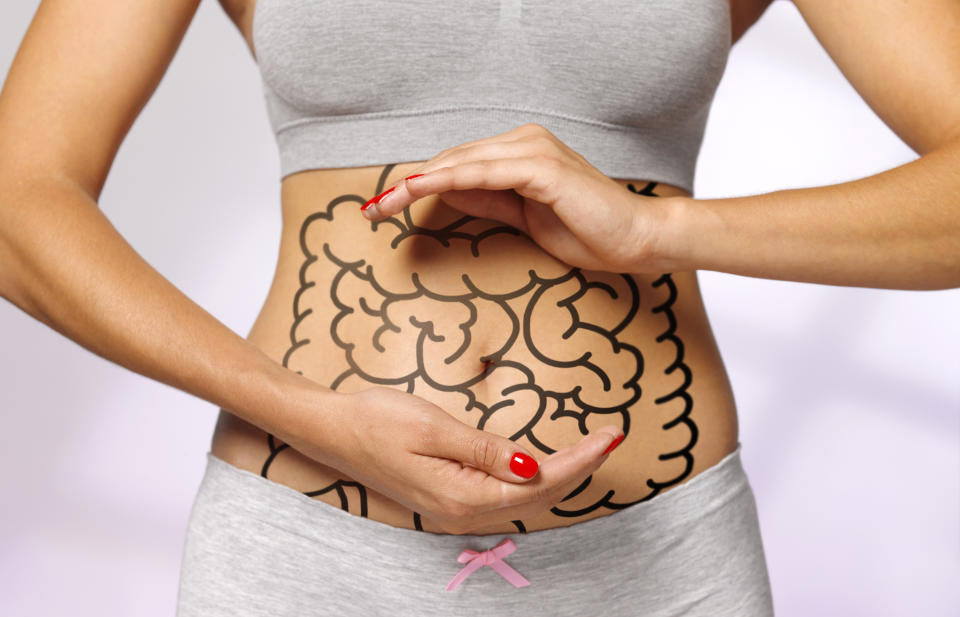
She added, "Even if we were completely at rest, our body still needs a lot of energy because it's functioning and performing all of these amazing chemical reactions to keep everything working the way it should."
Baum also said, "There are things that affect our metabolic rate, but it's not going to be things like apple cider vinegar or green coffee bean extract." Getting enough to eat and exercising regularly have a much greater impact on metabolism than any supplement.
Baum summed it up by saying, "I think one of the things that's so important to remember is that the supplement industry is a business that is trying to sell supplements. And so, very often we see claims that are either grossly overinflated or just flat-out false."
In 2014, Dr. Oz was called to testify before the US Senate during a hearing about misinformation in the weight loss industry. Senators grilled Oz for describing a whole gamut of unproven pills and products as "magical" and "miraculous."
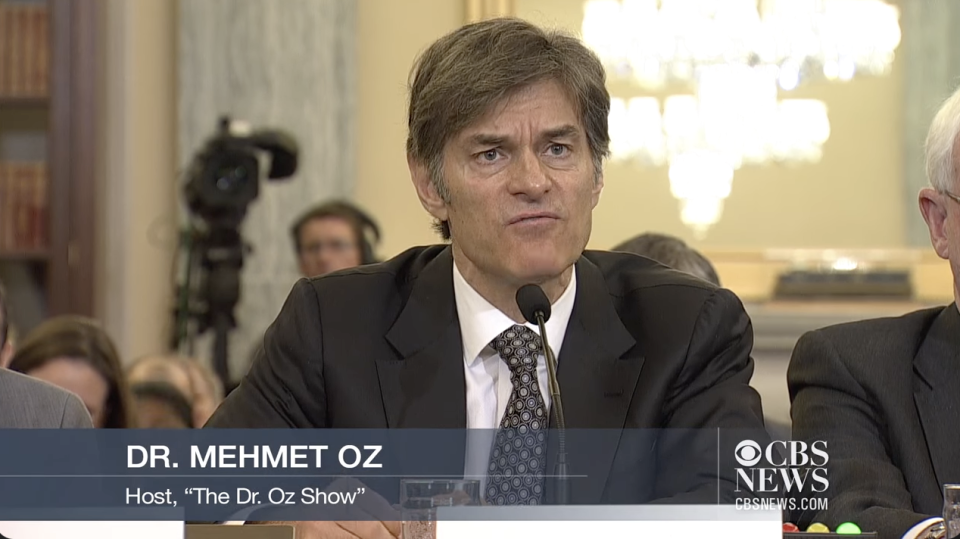
Under questioning, Oz eventually admitted, "There’s not a pill that’s going to help you, long-term, lose weight, live the best life, without diet and exercise."
2.But Oz didn't just make claims about speeding up metabolism. In a 2014 episode of his show, a guest shared a list of alleged "metabolism death foods" that included common foods like whole grains, peanut butter, canola oil, and butter. You can watch the whole segment below, if you dare:
But Baum says you can delete this list of alleged metabolism-killing foods from your brain because that's just not a thing: "I don't think there's any one food that's gonna do that."
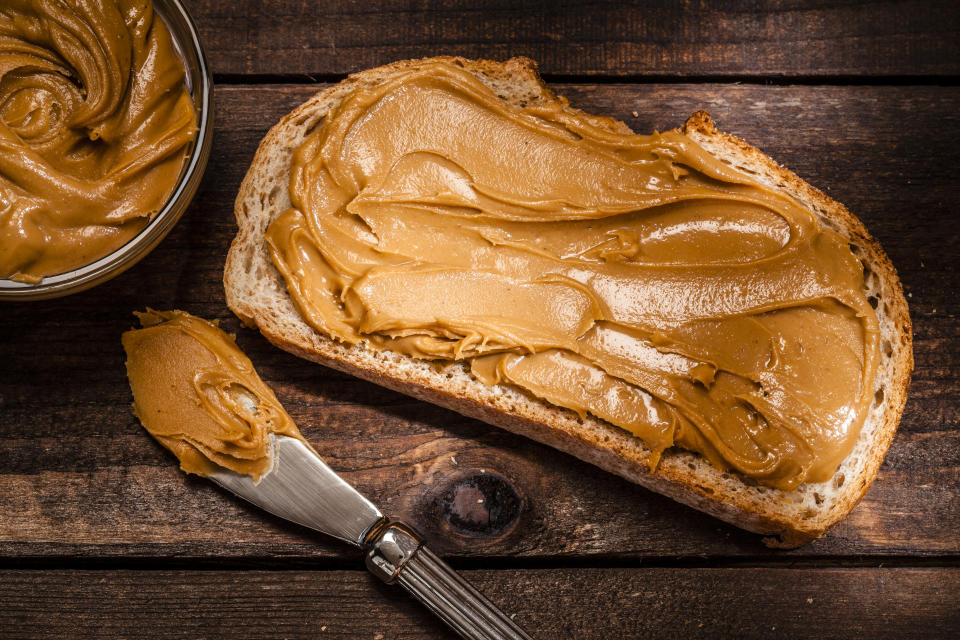
She added, "What can slow down metabolism is not eating enough throughout the day."
Ultimately, Baum says, eating well is one of the best things you can do for your metabolism, and a balanced diet can absolutely include whole grains and peanut butter.
"I think it's important that we eat enough and we stay adequately nourished, but that's very different than claiming that there's this one kind of evil food out there that's really going to destroy our metabolic health and we'll never get it back," she explained.
3.Speaking of restrictive diets, let's talk about The Biggest Loser. In this competitive weight loss reality show, contestants were put on an extremely low-calorie diet, but Baum said she would advise against trying it at home.
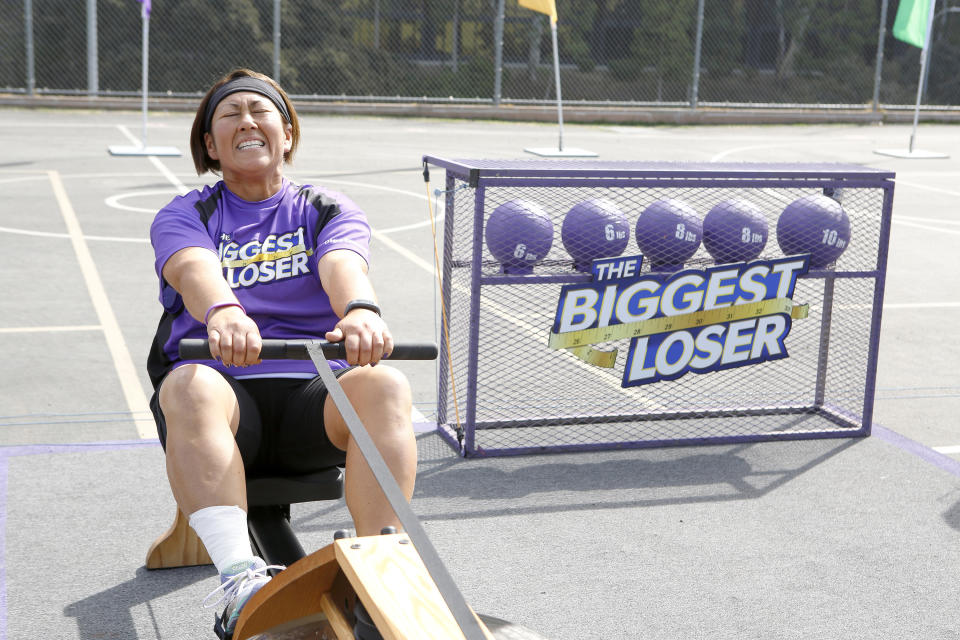
According to Baum, these kinds of drastic diets do more harm than good. "One of the things about The Biggest Loser is that, in my opinion, it really perpetuated unhealthy disordered behaviors with food," she said.
"Any type of caloric restriction that's as low as 1,200, even 1,500 calories, is going to be incredibly hard to maintain. It's well under the energy needs of an adult human being, and it really has the potential to be harmful."
In addition, these kinds of diets generally don't work out in the long run, Baum said: "Often what we see for people who go on very restrictive diets is that over time, they can't sustain it."
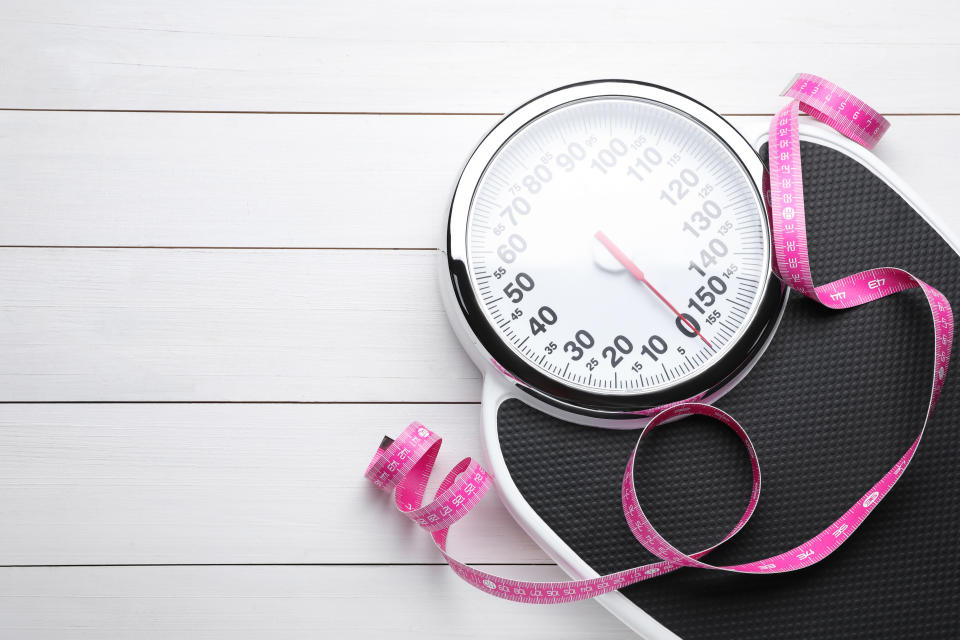
She added, "Then they gain the weight back, which can kind of lead to weight cycling, and that can be really stressful for the body — to be semi-starved and then gain weight back, and then to be semi-starved and then gain weight back. And so I am really, really against any type of caloric restriction like that."
You might know (or even be) a person who's happy with the results they've gotten from dieting, but generally, Baum said, this is the exception to the rule. "There will always be outliers. There will always be people who followed a kind of restrictive plan and then they lost weight and kept the weight off, but we know from a lot of the long-term research that we have, that's really the exception."
She added, "Bodies come in all shapes and sizes, and dieting can be both psychologically and physically really harmful for folks."
4.The Biggest Loser also promoted rapid weight loss, with one contestant losing as much as 34 pounds in a week. But is that kind of weight loss actually healthy?
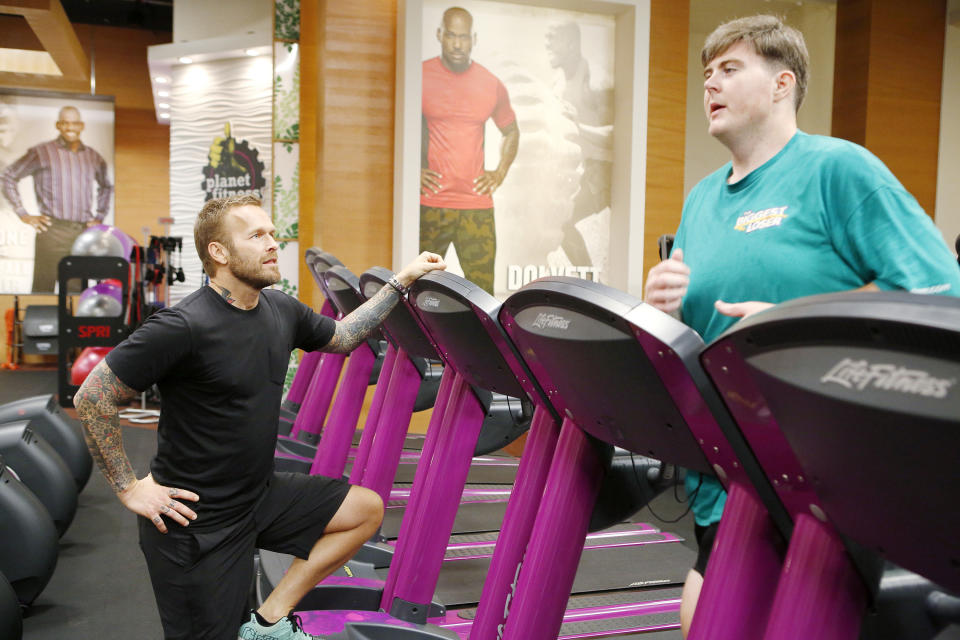
Baum said there are two problems with the rapid weight loss shown on the show: "The amount of stress that would put on the body — both from not being adequately fed and from your being so active when you don't even have enough nutrients to recover appropriately — would not be a healthy model, in my opinion, at all."
And she explained how rapid weight loss can harm the body. "One of the consequences of any very rapid weight loss diet is gonna be a much higher loss of lean body mass, which we want to try to preserve because [it's] super important to our balance and our strength," she said.

"It's super important as we age to have strong muscles, so we don't want to lose lean body mass."
And that's not the only problem with this kind of dieting. Baum explained, "There's the psychological piece too, for sure, which is that being very restrictive around food can often lead to disordered eating for many people."
There are also other symptoms that can come along when the body is in a "semi-starvation state," Baum said: "Things like difficulty concentrating, irritability, feeling hungry all the time, losing hunger cues, can happen. Sometimes digestion slows way down because the body is trying to conserve energy. There are lots of physiological shifts that the body does to protect us when it sees there's not a lot of food around and not a lot of energy around right now."
5.Remember temptation challenges? During these Biggest Loser segments, contestants had the chance to gain advantages in the competition by racing to eat so-called bad foods. For example, here's what a temptation challenge looked like in Season 5 of the show:
When I asked Baum about these uncomfortable challenges, her first candid reply was, "I remember that aspect of the show, but I think I blocked it out because I found it horrifying."
She continued, saying, "This is not going to surprise you, but I don't think there are any bad foods. I think it's important to eat a wide variety of foods."
And she said it's just often really unhelpful to think of food in terms of "good" and "bad": "I think that labeling food as good or bad, healthy or unhealthy, clean or not clean, what it does for most people is perpetuate guilt and shame in how they're relating to food."

She continued, "It's also not super accurate. I've yet to read the scientific study that says someone who enjoys a donut, suddenly their health crashes after." Instead, Baum said, proper nutrition is more about what we eat over time from lots of different categories of foods: "Food is really neutral. It should be enjoyable, and we should like food. It should taste good, and it should provide us fuel and energy and nutrients and all of those things."
6.Back to Dr. Oz, he has also claimed that supplements can prevent cancer, calling the mineral selenium "the holy grail of cancer prevention." In addition, he claimed that eating endive, red onion, and sea bass can reduce the risk of ovarian cancer in particular by a whopping 75%.
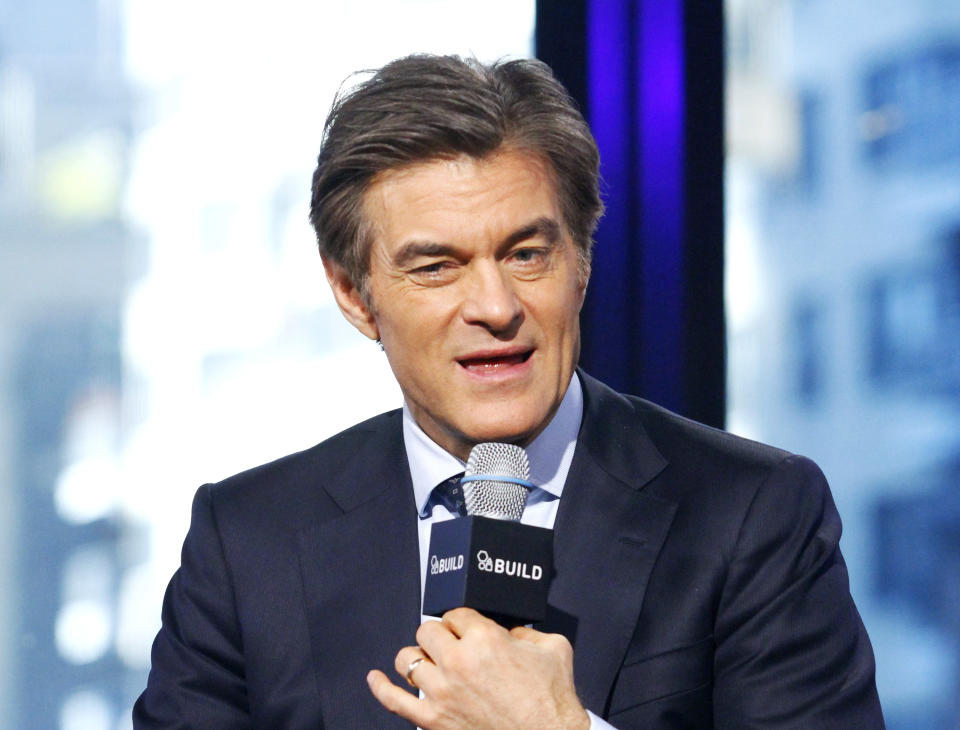
But according to Baum, the link between diet and cancer is nowhere near as clear-cut as Dr. Oz's show made it seem. She explained, "What always worries me every time I hear the claim, 'It's going to prevent or cure cancer,' is that cancer is a very complex disease, and each type of cancer is very, very different." To her point, even cancers that we tend to think of as one type of disease, like breast cancer, for example, are actually a group of cancers that happen to affect the same organ.
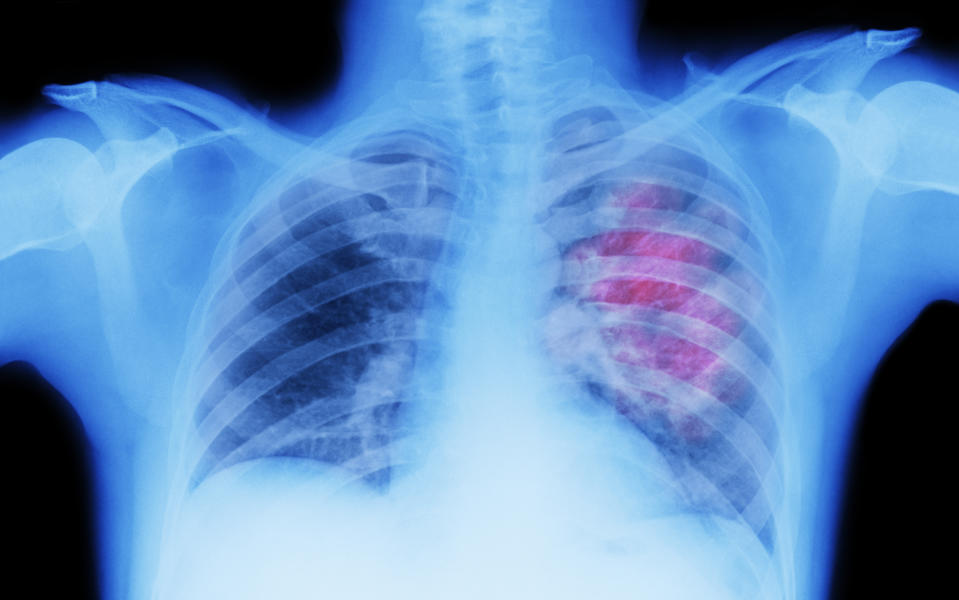
So given that "cancer" can cover such a diverse range of diagnoses, Baum explained that there's no one food or supplement that can fight all of them: "I would not say that this is 100% my area of expertise, but I feel pretty confident saying that no one food can cure or prevent cancer."
So, as Baum put it, "That claim is really inflated in a way that I think can be misleading, particularly to a population of people who are usually really struggling. ... [Cancer patients are] a very vulnerable population that often gets misled when it comes to recommendations around very specific vitamins, minerals, supplements that are going to prevent cancer or cure it."
And these misleading claims around supplements and cancer can easily turn predatory.
Even in cases where scientific studies seem to support the idea of a food or supplement having anticancer properties, Baum said it's crucial to look beyond the headlines and understand how that research was done: "When we look at research, it's very important that we distinguish the research that's been done in a cell culture dish, the research that's been done in an animal model, and the research that's been done in a human being, because those are three very different scenarios."
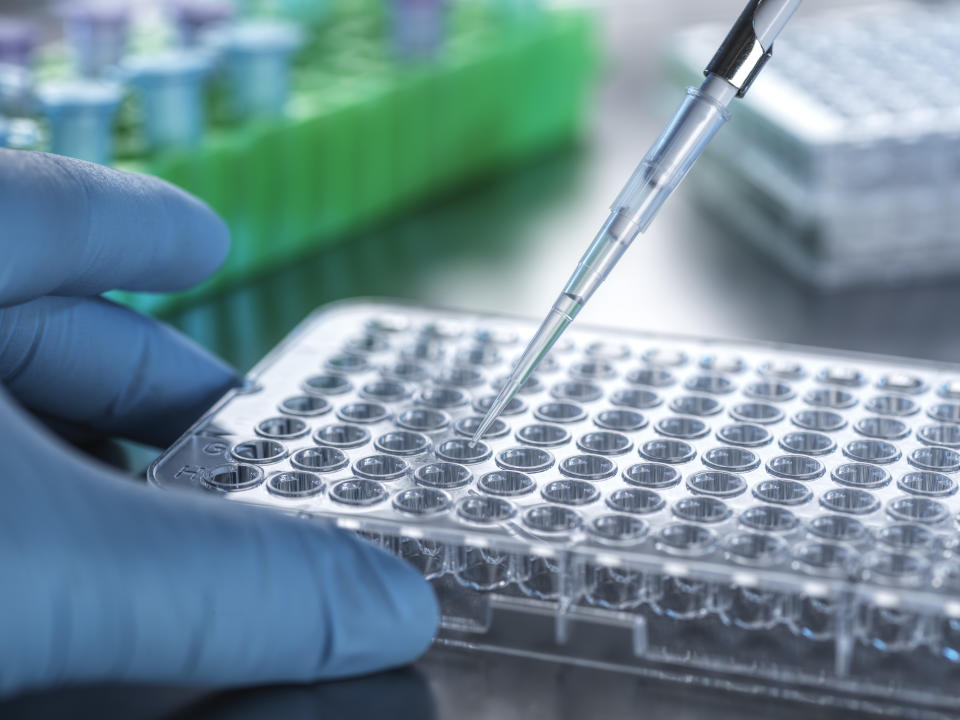
She added, "Rats are not cells in a dish, and each of those experimental models will behave very differently. Just because something happens in a cell culture dish doesn't mean it's gonna play out like that in the human body."
7.And finally, I asked Baum for her thoughts on the infamous "wagon of fat" moment on The Oprah Winfrey Show. In this episode, Oprah revealed that she had gone on a liquid diet to lose weight, pulling a wagon loaded with animal fat behind her as a visual aid for the audience.
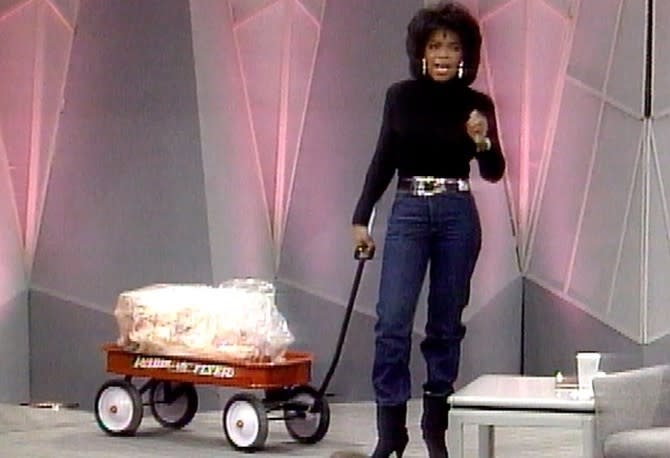
In a 2005 article that originally appeared in O, the Oprah Magazine, Oprah wrote, "For four solid months, I didn't eat a single morsel of food. When I started Optifast in July 1988, I was at 212 pounds. By fall, I weighed 145 pounds. Wearing my size 10 jeans, I pulled a wagon full of fat — representing the 67 pounds I'd dropped — onto the stage. What I didn't know was that my metabolism was shot."
"This is a greatest hits of horrible diet culture ... that we're on right now," Baum began. "A stunt like that really perpetuates weight stigma in a way that I have to consider and think about because it's not just about the individual."
She continued, "It's all of these people who are watching her roll out this wagon of fat and saying, 'Fat is bad, thin is better.' How could that not have made everybody who was living in a larger body just feel terrible about themselves in that moment?"
Baum said, "As far as the liquid diet, I would put that in the same category as The Biggest Loser. All of these ultra-low-calorie diets, will they work in the short term? Sure, probably, but then there's going to be all of these negative downstream effects."

She reiterated, "A liquid diet, again, would never be something that I would encourage people to engage with."
But Baum is also careful to note that she's not shaming anyone who has participated in these kinds of diets. "Though, of course, you and I can both really understand why people do keep engaging in these diets. It's cultural. We live in a society that tells everybody to be chronically dieting and to be as thin as possible. So there's also this big side of me that says, 'I get it, I understand it,' but for most people, it doesn't usually lead to true health and wellness."
Finally, Baum warned that while TV was a major spreader of this kind of health misinformation in the '80s, '90s, and 2000s, a lot of that stuff has moved onto social media now. "I'll have a client be like, 'Did you see the TikTok trend where people are drinking salt water?' And I can't even keep up with it because there's so much. And so, one of the things that I always encourage people is just to be a very conscious consumer of social media," she said.

"I would encourage people just to remember that, if they really want nutrition information that's grounded in science, talk to a dietitian, to a PCP [primary care physician], talk to a specialist in the field. Because social media particularly has the capacity to perpetuate myths in a way where I think many people are struggling to know what to even think about nutrition at this point because there's just so much out there."
The National Eating Disorders Association helpline is 1-800-931-2237; for 24/7 crisis support, text “NEDA” to 741741.

 Yahoo Lifestyle
Yahoo Lifestyle 
